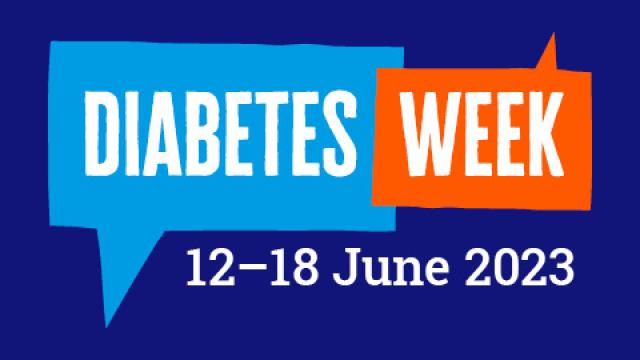Diabetes Week

Diabetes U.K. organises Diabetes Week. The charity has a long history of campaigning; it was founded in 1934 by the writer H.G.Wells and Dr. R.D. Lawrence, who were themselves diabetics. The week is all about creating awareness of the condition and encouraging people to share their experiences of living with diabetes. Many other groups and organizations take part in diabetes week, hosting a wide variety of informative and fundraising events.
Raising awareness of diabetes and what changes people can make in order to reduce their risk is the main aim of the charity. They are also involved with campaigning, funding research and offering support and advice to current sufferers. Diabetes U.K. has many useful resources for professionals who are involved in diabetic health care, including information on best practice and up to date research discoveries.
Diabetes is predicted to become a huge crisis for the future health of the U.K.’s population. It is a health condition that can have a major impact on one’s life and once at an advanced stage, diabetes can cause a host of other health complications. Knowledge of the causes of diabetes is a prerequisite to reducing the risk of becoming a diabetic.
Diabetes afflicts more people in the U.K. than any other serious health condition. There are 4.6 million Type 1 sufferers and an estimated 12.3 million people are potential type 2 diabetics. Help to raise awareness, participate in an event or alternatively share your experience on line.

THE BASICS
type 1 diabetes
Fewer than one in 10 people in the UK who have diabetes have type 1 diabetes. There is nothing you can do to prevent yourself or others developing type 1 diabetes.
If you have type 1 diabetes, your blood sugar is too high because your body can’t make a hormone called insulin.
Although it’s often diagnosed in childhood, people can develop type 1 diabetes at any age. You are at a slightly higher risk of type 1 diabetes if your mother, father, brother or sister has it.
Insulin is the main treatment for type 1 diabetes. You can’t live without insulin injections or using an insulin pump. Checking and managing your blood sugar levels is important to help you reduce your risk of serious short or long-term health problems. These are called diabetes complications.
There is currently no cure for type 1 diabetes, but we’re funding lots of research to help find new treatments and a cure.
type 2 diabetes
Type 2 diabetes is the most common type. It is high blood sugar levels due to your body not making enough of a hormone called insulin, or what it makes not working properly — known as insulin resistance.
Treatment includes eating well and moving more. Some people may also need to take diabetes medication such as metformin or insulin.
Type 2 diabetes can go undiagnosed for years if symptoms are missed. Left untreated high blood sugar levels can cause serious health problems called diabetes complications.
Anyone can develop type 2 diabetes but it mostly affects people over 25 often with a family history.
Type 2 diabetes doesn't just affect people living with overweight or obesity, although this is one of the risk factors, along with ethnicity.
There’s no cure but some people with type 2 diabetes can put their diabetes into remission by losing a significant amount of weight.






















